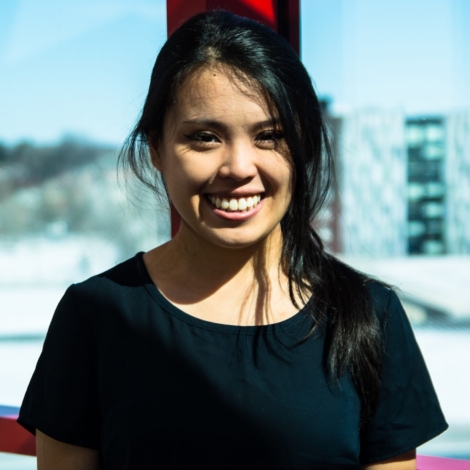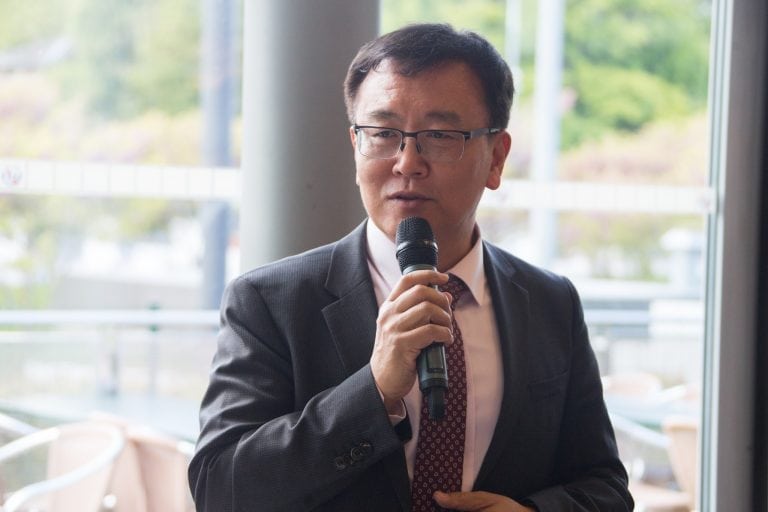What can E4C’s Fellowship do for a career? The ‘Where Are They Now?’ series tracks Engineering for Change’s Fellowship alumni to learn about their work in sustainable development engineering, and the effect that the fellowship had. Our alumni have high-impact careers that are meaningful to them and the communities where they work.
Our fellows report that the greatest benefits of the program are the professional skills they develop. For more, see this research collaboration with the Siegel Family Endowment that explores the impact of an E4C Fellowship.
With that in mind, we are pleased to introduce Shannon Tin Oi Lee, an E4C Fellowship alum, mechanical and industrial engineer and Programs Lead at the University of Toronto in Toronto, Canada.
“It is hard to feel the impact of your engineering work, but E4C emphasized this impact. There was a sense of heart, humility, and community while working on SDG projects. I never felt alone and always felt supported” – Shannon Tin Oi Lee
E4C: What are you working in now?
SL: I started working at the University of Toronto’s incubator/accelerator. I am the Programs Lead of the accelerator program, where I oversee ~250 students in helping them develop their engineering ideas into a scalable startup.
This is meaningful because all the engineering ideas are niche, unique, and novel, much like every E4C impact designs. Developing the scalable startup ensures that it reaches as many people in the world as possible, especially those who need it, so that our engineering can actually make a positive difference in the lives of others.
E4C: How does your work intersect with Engineering for Sustainable Development?
SL: The students I work with all have their own unique engineering ideas that work towards sustainable development. Although I miss working on my own sustainable design projects, I have scaled up by managing hundreds of students to work on their own sustainable design projects! Who knew my passion in sustainable engineering could be scalable and amplified in this way!
I am currently working on my own ideas towards sustainable development, with the hopes that I will tackle them with full focus in the future. But for now, I record all of these feasible ideas, and I run three workshops per week at the University of Toronto and present the ideas to students who drop in. Students may find interest in taking one of the ideas and running with them! If they’re interested, my workplace helps the student turn it into a scalable solution to reach (hopefully) the entire world that is in need of it.
E4C: How does a typical day at your job look?
SL: I sit in the heart of the University of Toronto’s Centre for Innovation for mechanical and industrial engineers. I interact with around 250 students in total, around 20 students per day. Each student has their own sustainable development project.
Sometimes I listen to their rants- and I remind them that this work is hard work, but I simply remind them of the meaningfulness and impact of why we do what we do. Other times, I listen to a specific engineering problem that they are facing in their project/design and I will offer my engineering input. Finally, I will help them develop a plan to make it a scalable startup so that they are able to reach those in need, and potentially partner with other organizations to distribute the project, or simply learn about what they need to launch it to that level. That is what our accelerator program is all about. And I am tired at the end of every work day, but it is entirely worth it! 🙂
E4C: Do you enjoy it?
SL: ABSOLUTELY enjoy! I think I worked on so many diverse engineering projects, most within sustainable engineering and development. I love to pull knowledge/experience from previous projects and offer professional engineering opinion/advice.
But the whole other element is giving external validation. It is very easy for engineering students to forget the meaningfulness of their work and why they’re doing what they’re doing. I love finding students that are on the verge of quitting, because I can remind them of what they started and why they started. I’ve been very proactive in the SDG space in terms of hardcore engineering designs, but now i’ve taken more of a mentorship/philosophical role, and I find this more enjoyable because my impact has scaled up. Working with hundreds of SDG ideas at a time is mentally stimulating and I take utmost care into learning about the individual and project. I cannot imagine doing anything else.
E4C: How did our fellowship affect your career?
SL: E4C has opened my eyes in terms of seeing your engineering work have impact on countless lives on the other side of the planet. It is hard to feel the impact of your engineering work, but E4C emphasized this impact. There was a sense of heart, humility, and community while working on SDG projects. I never felt alone and always felt supported. And the world did feel connected through our projects. I knew that I wanted to feel this scalability in my passion for SDG projects. How can I work or help develop dozens, maybe even hundreds, of SDG projects at one time? Well that’s exactly what I’m doing now!
E4C: What advice do you have for engineers interested in sustainable development?
SL: Do you want to not just see, but FEEL the impact of what your knowledge in engineering can do for the positive impact on the lives of others? Then do it!
Shannon discusses her experience from fellowship to leadership in this E4C Webinar:

